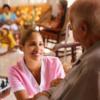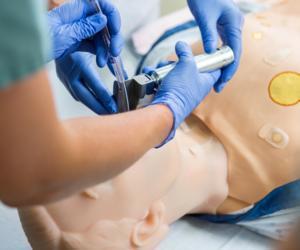Why Should Nurses Take Liberal Arts

Liberal arts are designed to provide a well-rounded education and help students develop general intellectual capacities. Liberal arts provide general knowledge about arts, humanities, natural sciences, and social sciences.
- Humanities include art, ethics, literature, linguistics, religion philosophy, modern foreign languages, theater and music, plus classical speech languages.
- Social sciences are histories, law, sociology, anthropology, business informatics, gender studies, law, sociology, politics, gender studies, anthropology, economics, geography, business informatics, and psychology.
- Natural sciences are biology, chemistry, astronomy, physics, botany, Earth sciences, zoology, and geology.
- Formal sciences include mathematics, logic, and statics.
In other words, the liberal arts give you a complete education and a well-versed subject area. In ancient Greece scholars claimed that one with a liberal arts background was an educated person, and someone to be reckoned with.
Nursing and liberal arts
Nurses face many different complications inpatient care. They must know how to communicate to people, even people who don’t speak English. They need to know where to find answers and how to do research. It is vital to a nurse to work well with people from other professions to provide the best care for their patients. Ethical problems for nurses make it important to have the background to know how to retort.
When there are decisions to be made quickly, nurses need to fall back on their education from diverse areas to ensure the best decisions are made in behalf of their patients. Where do liberal arts come into this?
Nurses are trained to work with acutely ill patients. These patients are not cardboard; they have intricate layers of social, cultural and physical issues. Nurses need to think through problems, not just spout medical information. Nursing education combined with a liberal arts education is the combination that produces someone who can think through issues, make a sound clinical decision, and effectively communicate this decision to the patient. Liberal arts subjects can be presented in nursing classes, but the best nurse has an education and knowledge received in different types of college classes.
Dr. Richard Busfield, a New Zealand medical educator beautifully says, “Put simply, our task as educators now is to prepare students for a world we can’t envisage. When students are stuck with something they’ve never seen before they need to think rather than just remember. Students need to be taught different thinking skills (critical/analytical, creative and caring) to deal with new knowledge and challenges.” Nurses need to know how to communicate and be creative.
Humanities are the studies of human society and culture
Communications give a nurse the ability to apply communication theories to professional situations and help develop the soft skills and techniques that are needed to work with groups and individuals. Communication teaches nursing students how to create and use messages to generalize meaning across all context, cultures, and media. Communication includes writing both business and technical writing. Knowing how to write clear and concise statements will help a nurse to succeed in their professional world.
Pamela Giles, the dean of the School of Nursing at Averett University, told a story about a student who was terribly frustrated that she had to write a paper. The student emphasized that she was in school to become a nurse and not an English major. After graduation, the student contacted Dean Giles to thank her for pushing her to take writing courses and learn how to write a paper. She had made a successful appearance with her proposal to the main board at her hospital. Due to her research and writing, the hospital accepted her ideas in all of its nationwide facilities.
When dealing with spiritual issues surrounding patients, nurses will often be faced with talking to families about death and dying. A basic understanding of what is going on in a religious world will help in this situation.
Literature, speech, writing, and language provide knowledge in how to communicate with others. You need know how to give out information and pass on ideas and opinions.
There are nursing schools requiring art courses so that students can observe works of art. Art may seem like a useless course but seeing details in artwork helps students identify details in patients. Nursing is detailed work and experience in understanding something different is critical. Some schools ask a nursing student to take drawing or sculpture classes to find a new awareness of detail.
The social sciences are designed to help you learn to understand yourself, and how to relate to others
Courses include subjects concerning people who are different from you. A brief listing of social science studies includes economics, history, anthropology, human geography, law, political science, sociology, public health, and political science.
Social sciences include psychology or the study of behavior and mental process. Nurses need to apply psychology to problems of patients including their daily lives and perhaps helps to treat psychological issues. Knowing a bit about psychology will give a nurse the confidence to listen to patient’s problems, deals with their moods, and understand what being in the hospital means to a patient.
Formal sciences are a vital part of nursing education
They teach how the body Is designed and how it functions when it is healthy as well as when it is sick. A nurse with a formal science background or knowledge knows how to use logic, statistics, and mathematics in their care of patients.
The most ancient of learning was in mathematics. Today, nurses must know mathematics to decide how much medication to give a patient, how to analyze the amount a patient has eaten or drank, how to calculate, and how to think logically. Formal sciences are defined by a set outline of definitions and analytical statements.
Natural sciences are a “natural” for nurses.
If you desire to pursue medical employment, you will need to have a liberal art major with a focus on biology, chemistry, psychology, anthropology, geology, physics,and neuroscience.
Chemistry (general) is necessary for a nurse to know how to describe medication and to know what chemical interacts with other chemicals.
Biology is necessary to understand how the body communicates. Biology teaches you to obtain knowledge about life and living organisms. This subject encompasses the study of diseases, infections, and how they relate to the human body.
Anatomy and physiology study the human body including the structure and function. Tissues, cells, membranes that make up your body is part of the study of anatomy and physiology. A nurse needs to be almost an expert in the natural science fields.
Liberal arts go hand-in-hand with nursing. Without a liberal arts background, a nurse would be a one-dimension person with no knowledge of how to handle a disgruntled or gravely ill patient. Being a nurse with a liberal arts background will give you the combination that produces quick thinking and sound medical decisions. Communicating treatment plans with patients and their family helps to ensure easy and rapid recoveries and less frequent visits to the clinic or ER. Life in a medical setting is not comfortable; it never was, but now it is highly involved with rules and regulations that govern the nursing tradition. Without a liberal arts background, it would be so much more difficult for a nurse to deal with different levels of complexity and make the decisions that deal with life and death.






